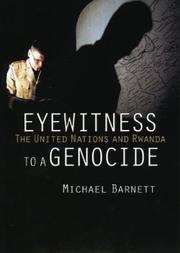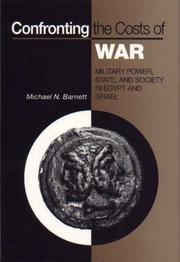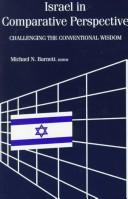| Listing 1 - 10 of 24 | << page >> |
Sort by
|

ISBN: 0801438837 Year: 2002 Publisher: Ithaca, N.Y. Cornell University Press
Abstract | Keywords | Export | Availability | Bookmark
 Loading...
Loading...Choose an application
- Reference Manager
- EndNote
- RefWorks (Direct export to RefWorks)
United Nations --- Genocide --- -#SBIB:327.7H125 --- #SBIB:327.6H01 --- #SBIB:328H419 --- Cleansing, Ethnic --- Ethnic cleansing --- Ethnic purification --- Ethnocide --- Purification, Ethnic --- Verenigde Naties: bijzondere vraagstukken --- Internationale en diplomatieke relaties: specifieke conflicten --- Instellingen en beleid: andere Afrikaanse landen --- Rwanda --- History --- -Atrocities. --- Ethnic relations. --- International movements --- National movements --- Génocide --- Ethnic relations --- Histoire --- Relations interethniques --- Republika y'u Rwanda --- Rwandu --- Ruanda --- République rwandaise --- Republic of Rwanda --- Résidence du Ruanda --- Republika Nyarwanda --- Repubulika y'Urwanda --- Rwandese Republic --- République du Rwanda --- Repubulika y'u Rwanda --- ルワンダ --- Ruwanda --- רואנדה --- Ruʼandah --- Jamhuri ya Rwanda --- Руанда --- Республика Руанда --- Respublika Ruanda --- 卢旺达 --- Luwangda --- #SBIB:327.7H125 --- UN --- UNO --- Atrocities. --- Naciones Unidas --- Nations Unies --- ONU --- Organisation des Nations Unies --- Organizat︠s︡ii︠a︡ Obʺedinennykh Nat︠s︡iĭ --- OON --- Vereinigte Nationen --- Umot ha-meʼuḥadot --- Organizacja Narodów Zjednoczonych --- ONZ --- Forente nasjoner --- Forenede nationer --- FN --- Förenta nationerna --- Gaertʻianebuli erebi --- Organização das Nações Unidas --- PBB --- Perserikatan Bangsa-Bangsa --- Kokusai Rengō --- Kokuren --- ENSZ --- Egyesült Nemzetek Szövetsége --- Birleșmiș Milletler Teșkilâtı --- Birlăşmiş Millătăr Tăşkilatı --- Birlashgan Millatlar Tashkiloti --- BMT --- YK --- Yhdistyneet kansakunnat --- OUN --- Organizacija Ujedinjenih Nacija --- NU --- Nazioni Unite --- OSN --- Organizace spojených národů --- Sāzmān-i Milal-i Muttafiq --- Bangsa² Bersatu --- Organización de las Naciones Unidas --- Ühinenud Rahvaste Organisatsioon --- ÜRO --- Organismos tōn Hēnōmenōn Ethnōn --- Umoja wa Mataifa --- Vereinten Nationen --- Vereinte Nationen --- Hayʼat al-Umam al-Muttaḥidah --- Verenigde Naties --- VN --- Organizația Națiunilor Unite --- Um --- Lien ho kuo --- OKB --- Organizata e Kombeve të Bashkuara --- Lian he guo --- U.N. --- Umam al-Muttaḥidah --- OĒE --- Hēnōmena Ethnē --- Organizácia Spojených Národov --- Sahaprachāchāt --- Națiunile Unite --- Organizat︠s︡ii︠a︡ na obedinenite nat︠s︡ii --- Organismos Hēnōmenōn Ethnōn --- Manẓūmat al-Umam al-Muttaḥidah --- AAN --- Arhanizatsyi︠a︡ Ab'i︠a︡dnanykh Natsyĭ --- Nações Unidas --- Orhanizat︠s︡ii︠a︡ Ob'i︠e︡dnanykh Nat︠s︡iĭ --- O.Ē.E. --- ʻOngkān Sahaprachāchāt --- Sjuninejal Konob'laq --- Sāzmān-i Milal-i Muttaḥid --- Milal-i Muttaḥid --- Nėgdsėn U̇ndėstniĭ Baĭguullaga --- NUB --- Rāshṭrasaṃgha --- או״מ --- أمم المتحدة --- الأمم المتحدة --- سازمان ملل متحد --- 国際連合 --- 联合囯 --- 聯合國 --- United Nations Organization --- Liên Hiệp Quó̂c --- Liên Hợp Quó̂c --- LHQ --- Kula Samagga --- YūʼAṅʻnʻ --- 联合国 --- Организация на обединените нации --- Организация Объединённых Наций

ISBN: 0231109199 Year: 1998 Publisher: New York (N.Y.): Columbia university press
Abstract | Keywords | Export | Availability | Bookmark
 Loading...
Loading...Choose an application
- Reference Manager
- EndNote
- RefWorks (Direct export to RefWorks)
Pan-Arabism --- Panarabism --- Panarabisme --- 812 Ideologie --- 815 Geschiedenis --- 821.1 Volkenrecht --- 841 Politiek Bestel --- 846 Identiteit --- 846.1 Etniciteit --- 850 Vrede- en conflictstudies --- 883.4 West-Azië --- Nationalism --- -Consciousness, National --- Identity, National --- National consciousness --- National identity --- International relations --- Patriotism --- Political science --- Autonomy and independence movements --- Internationalism --- Political messianism --- Arabism --- Panislamism --- Arab cooperation --- Arab countries --- -Arab countries --- -Arab world --- Arabic countries --- Arabic-speaking states --- Islamic countries --- Middle East --- Politics and government --- Foreign relations --- -Politics and government --- -Pan-Arabism --- Consciousness, National --- Foreign relations. --- Politics and government.

ISBN: 0691078831 0691000956 9786612751578 1282751573 1400820707 1400810906 9781400820702 9781400810901 9780691078830 9780691000954 9781282751576 6612751576 1400815029 Year: 2012 Publisher: Princeton, NJ
Abstract | Keywords | Export | Availability | Bookmark
 Loading...
Loading...Choose an application
- Reference Manager
- EndNote
- RefWorks (Direct export to RefWorks)
What determines the strategies by which a state mobilizes resources for war? And does war preparation strengthen or weaken the state in relation to society? In addressing these questions, Michael Barnett develops a novel theoretical framework that traces the connection between war preparation and changes in state-society relations, and applies that framework to Egypt from 1952 to 1977 and Israel from 1948 through 1977. Confronting the Costs of War addresses major issues in international relations, comparative politics, and Middle Eastern studies.
Civil-military relations --- Relations pouvoir civil-pouvoir militaire --- History --- Egypt --- Israel --- Israël --- Egypte --- Military policy. --- Politics and government. --- Politics and government --- Politique militaire --- Politique et gouvernement --- 810 Theorie en Methode --- 830 Economie --- 836 (Multi-)nationale ondernemingen --- 837 Financiën en Bankwezen --- 841 Politiek Bestel --- 842 Media --- 850 Vrede- en conflictstudies --- 855 Oorlogsvoering --- 870 Defensie en Wapens --- 881.3 Noord-Afrika --- 883.4 West-Azië --- Civil-military relations. --- Israël --- Military and civilian power --- Military-civil relations --- Ägypten --- Egitto --- Egipet --- Egiptos --- Miṣr --- Southern Region (United Arab Republic) --- Egyptian Region (United Arab Republic) --- Iqlīm al-Janūbī (United Arab Republic) --- Egyptian Territory (United Arab Republic) --- Egipat --- Arab Republic of Egypt --- A.R.E. --- ARE (Arab Republic of Egypt) --- Jumhūrīyat Miṣr al-ʻArabīyah --- Mitsrayim --- Egipt --- Ijiptʻŭ --- Misri --- Ancient Egypt --- Gouvernement royal égyptien --- Executive power --- Sociology, Military --- Military government --- Égypte --- جمهورية مصر العربية --- مِصر --- مَصر --- Maṣr --- Khēmi --- エジプト --- Ejiputo --- Egypti --- Egypten --- מצרים --- United Arab Republic --- Arab Cold War. --- Arab–Israeli conflict. --- Arms industry. --- Austerity. --- Authoritarianism. --- Bourgeoisie. --- Capitalism. --- Colonialism. --- Comparative politics. --- Conscription. --- Correlates of War. --- Counter-insurgency. --- Criticisms of socialism. --- David Ben-Gurion. --- Domestic policy. --- Economic development. --- Economic growth. --- Economic nationalism. --- Economic policy. --- Economic power. --- Economic problem. --- Economics. --- Economy. --- Egyptian Government. --- Embargo. --- External debt. --- Failed state. --- Foreign policy. --- Great power. --- Hard currency. --- High politics. --- Histadrut. --- Hostility. --- Ideology. --- Imperialism. --- Industrialisation. --- International relations. --- Israelis. --- Liberalization. --- Mapai. --- Marxism. --- Militarism. --- Militarization. --- Military Keynesianism. --- Military service. --- Military strategy. --- Military threat. --- Military–industrial complex. --- National security. --- Nationalization. --- Neocolonialism. --- Neorealism (international relations). --- On War. --- Origins of the Cold War. --- Overproduction. --- Policy. --- Political Order in Changing Societies. --- Political alienation. --- Political economy. --- Politics Among Nations. --- Politics. --- Populism. --- Power politics. --- Private sector. --- Public expenditure. --- Public sector. --- Radicalism (historical). --- Radicalization. --- Realigning election. --- Realism (international relations). --- Requirement. --- Right-wing politics. --- Security dilemma. --- Security studies. --- Shortage. --- Soviet Union. --- State (polity). --- State formation. --- States and Social Revolutions. --- Strategic goal (military). --- Strategy. --- Tariff. --- Tax. --- Theory of International Politics. --- Third World. --- Total war. --- Trade barrier. --- Undue hardship. --- War bond. --- War economy. --- War effort. --- War of Attrition. --- War studies. --- War. --- Warfare. --- World Politics. --- World War I. --- World War II. --- Yom Kippur War. --- Zionism.
Book
ISBN: 9780801447136 9780801478796 0801447135 0801478790 Year: 2011 Publisher: Ithaca : Cornell university press,
Abstract | Keywords | Export | Availability | Bookmark
 Loading...
Loading...Choose an application
- Reference Manager
- EndNote
- RefWorks (Direct export to RefWorks)
Humanitarian intervention --- Humanitarian assistance --- Humanitarianism --- History --- History. --- Humanitarian intervention - History --- Humanitarian assistance - History --- Humanitarianism - History
Book
ISBN: 9781316625712 9781107176904 9781316799956 1107176905 1316625710 1316799956 131682750X 1316829812 Year: 2017 Publisher: Cambridge Cambridge University Press
Abstract | Keywords | Export | Availability | Bookmark
 Loading...
Loading...Choose an application
- Reference Manager
- EndNote
- RefWorks (Direct export to RefWorks)
Nearly all of those who want to make the world a better place are engaged in paternalism. This book asks how power is intertwined with practices of global compassion. It argues that the concept of paternalism illuminates how care and control are involved in the everyday practices of humanitarianism, human rights, development and other projects designed to improve the lives of others. The authors explore whether and how the paternalism of the nineteenth century differs from the paternalism of today, and offer a provocative look at the power in global ethics, raising the question of whether, when, and how paternalism can be justified.
Political philosophy. Social philosophy --- Sociology of culture --- Paternalism --- Individualism --- Liberty --- Paternalism. --- Individualism. --- Liberty.
Book
ISBN: 9780415776325 9780415776318 0415776317 0415776325 9780203862971 9781135190514 9781135190552 9781135190569 Year: 2010 Publisher: London : Routledge,
Abstract | Keywords | Export | Availability | Bookmark
 Loading...
Loading...Choose an application
- Reference Manager
- EndNote
- RefWorks (Direct export to RefWorks)
Humanitarian intervention. --- International relief. --- Security, International. --- World politics --- Forced migration. --- Forced migration --- Humanitarian intervention --- International relief --- Security, International --- 814 Theorie van de internationale betrekkingen --- 822.1 Verenigde Naties --- 856.6 Vredesopbouw --- Collective security --- International security --- International relations --- Disarmament --- International organization --- Peace --- Grants-in-aid, International --- International grants-in-aid --- Relief, International --- Relief (Aid) --- Charities --- Economic assistance --- Public welfare --- Intervention (International law) --- Cleansing, Ethnic --- Compulsory resettlement --- Ethnic cleansing --- Ethnic purification --- Involuntary resettlement --- Migration, Forced --- Purification, Ethnic --- Relocation, Forced --- Resettlement, Involuntary --- Migration, Internal --- Droit d'ingérence humanitaire --- Secours international --- Sécurité internationale --- Relations internationales --- Transferts de population --- Nations Unies. Haut commissariat pour les réfugiés --- Nations Unies. Conseil de sécurité --- Intervention (droit international) --- Souveraineté --- Reconstruction de l'État --- 21e siècle --- Rwanda --- 1989-.... --- 1990-.... --- Population

ISBN: 0791495809 0585036365 9780585036366 9780791428313 0791428311 9780791428320 079142832X 0791428311 079142832X 9780791495803 Year: 1996 Publisher: Albany : State University of New York Press,
Abstract | Keywords | Export | Availability | Bookmark
 Loading...
Loading...Choose an application
- Reference Manager
- EndNote
- RefWorks (Direct export to RefWorks)
Israel --- Politics and government --- Foreign relations. --- International relations. --- Politics and government. --- Coexistence --- Foreign affairs --- Foreign policy --- Foreign relations --- Global governance --- Interdependence of nations --- International affairs --- Peaceful coexistence --- World order --- National security --- Sovereignty --- World politics
Book
ISBN: 1108872484 1108836798 1108875815 Year: 2020 Publisher: Cambridge : Cambridge University Press,
Abstract | Keywords | Export | Availability | Bookmark
 Loading...
Loading...Choose an application
- Reference Manager
- EndNote
- RefWorks (Direct export to RefWorks)
This book explores the fluctuating relationship between human rights and humanitarianism. For most of their lives, human rights and humanitarianism have been distant cousins. Humanitarianism focused on situations in faraway places dealing with large-scale loss of life that demanded urgent attention whilst human rights advanced the cause of individual liberty and equality at home. However, the twentieth century saw the two coming much more directly into dialogue, particularly following the end of the Cold War, as both began working in war zones and post-conflict situations. Leading scholars probe how the shifting meanings of human rights and humanitarianism converge and diverge from a variety of disciplinary perspectives ranging from philosophical inquiries that consider whether and how differences are constructed at the level of ethics, obligations, and duties, to historical inquiries that attempt to locate core differences within and between historical periods, and to practice-oriented perspectives that suggest how differences are created and recreated in response to concrete problems and through different kinds of organised activities with different goals and meanings.
Humanitarian intervention. --- Human rights. --- Basic rights --- Civil rights (International law) --- Human rights --- Rights, Human --- Rights of man --- Human security --- Transitional justice --- Truth commissions --- Intervention (International law) --- Law and legislation
Book
ISBN: 1108824110 Year: 2021 Publisher: Cambridge University Press
Abstract | Keywords | Export | Availability | Bookmark
 Loading...
Loading...Choose an application
- Reference Manager
- EndNote
- RefWorks (Direct export to RefWorks)
Book
ISBN: 9780691165974 Year: 2016 Publisher: Princeton Oxford Princeton University Press
Abstract | Keywords | Export | Availability | Bookmark
 Loading...
Loading...Choose an application
- Reference Manager
- EndNote
- RefWorks (Direct export to RefWorks)
| Listing 1 - 10 of 24 | << page >> |
Sort by
|

 Search
Search Feedback
Feedback About UniCat
About UniCat  Help
Help News
News